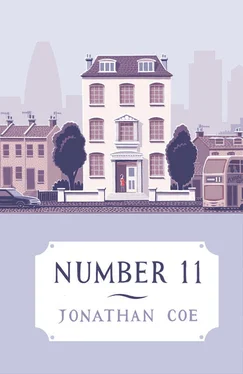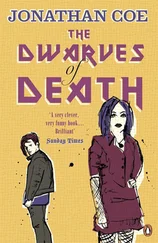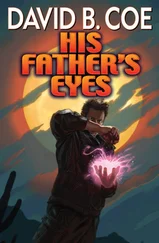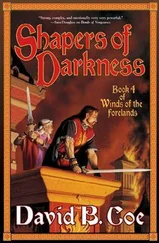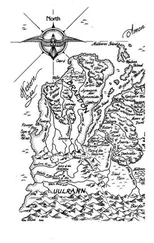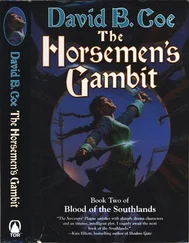‘Mum? I’m sorry.’
‘That’s OK,’ said Val, not turning around or turning the television down.
‘Did you hear me? I said I’m sorry .’
Val glanced back towards her. ‘Yes. I heard you. All right. Apology accepted. But maybe you should just think a bit more carefully before you say hurtful things.’
This was monstrously unfair, but Alison let it pass. There was no point in carrying on these fights any more. ‘I listened to your song,’ she said instead.
These words, by contrast, had an immediate effect. Val muted the television and turned round, a beseeching smile on her face.
‘You did? What did you think?’
And answering this was easy. However much her mother’s behaviour annoyed her, Alison had always enjoyed her music, never tired of listening to it, never had any trouble sharing her conviction that one day, with luck, with persistence, she would catch the public’s attention again and have another hit. And this new song, which she had listened to ten or fifteen times during the course of the day, was easily one of her best.
‘I loved it,’ she said. ‘It’s beautiful.’
‘Really? I mean, you’re not just saying that?’
‘No, Mum. I’m not just saying that. It’s brilliant. You know it is.’
‘Come and sit here.’ Val patted the place on the sofa beside her, and as soon as Alison had sat down gave her an impulsive hug. ‘What did you think of the arrangement?’
‘It’s fine. I mean, you know, it’s … getting there.’
‘Well, it’s the best I can do at home, obviously. Do you think it’s good enough to send to people?’
‘I don’t know, Mum. I’m not in the music business.’
‘Maybe if I bought some studio time. Just three or four hours’ downtime somewhere … Then I could record the vocal properly.’
‘Sure. Good idea. If you think you can afford it.’
‘Then I could send it to Cheryl.’
Alison nodded. She never knew what to say when her mother mentioned her so-called ‘agent’, who hadn’t returned one of her calls or messages for about ten years.
‘Do you like the title?’ Val asked now. ‘“Sink and Swim”? Is it catchy enough?’
‘I like everything about it.’ Finding herself caught up in another swift, clinging embrace which threatened to last for some time, Alison pushed her mother gently away and stood up. ‘OK, I’m going upstairs. I’ve got to finish writing to Rachel.’
‘That’s funny,’ said Val. ‘I just got an email from her mother.’
‘Yeah? How’s she?’
‘OK. Depressed about work, like everyone else.’
‘You should ask her what she thinks about you seeing Steve again.’
Val turned back to the television screen and unmuted it. ‘Oh, we don’t really discuss that sort of thing any more.’
The conversation was over, apparently. Leaving her mother to watch adverts for financial services she would never use and holidays she would never take, Alison went upstairs to her room, took her half-written letter out from the clutter of her desk drawer and began reading it through.
Nowadays, when it came to ways of keeping in touch, she and Rachel were spoiled for choice: they emailed and texted, and they talked on Facebook and WhatsApp. In the last few weeks, they’d even started using a newly launched app called Snapchat, which allowed them to send pictures and brief messages which were only visible for a few seconds before being wiped from the screen forever. But every so often, when one of them had something special to say to the other, only a real, old-fashioned letter would do. And what Alison had to tell Rachel now was as special and as personal as could be imagined.
So far she had written two pages and not even started to address the subject. Her last paragraph read:
So, I started at college two weeks ago (yeah, this isn’t Oxbridge , honey, we actually have a term that starts in September) and it’s looking pretty cool so far. Not sure if the course is going to be quite what I want but it’s such a relief to be hanging out with other students and teachers who just want you to do art and nothing else. The pressure to tow the line is off at last!
That was all very well, but Alison was cross with herself for not having come to the point yet. And so, nervously, she took up her pen, nibbled on the end of it for a minute or two and then wrote:
Anyway, none of that stuff matters, really. That’s not why I’m writing to you. I’m writing because there’s something you need to know, something I haven’t told any of my other friends yet. I wanted you to be the first, because … well, for all sorts of reasons. But mainly because you’re my oldest real friend and your reaction is incredibly important to me.
So. Can you guess what it is? Of course not. Why should you? (Deep breath.) I’m gay.
*
On Saturday afternoon Rachel, wanting to add a few things to her wardrobe before she left for Oxford in a couple of weeks’ time, went shopping with her mother. There was a recession on, but you would never have known it from the crowds in Leeds town centre, drifting sluggishly from shop to shop, hungry for consumer durables. Miss Selfridge and Monsoon were milling with customers. Primark was packed. H & M, Topshop, Claire’s Accessories, and Zara were too full to get into. River Island and Lush were turning people away. Rachel and her mother were both hot and exhausted by the time they got home.
As they approached the house, they saw that there was a car parked outside: a bright-red Porsche. Leaning against it, smiling smugly at them as they trudged up the street with their shopping bags, was Rachel’s brother, Nick.
‘Bloody hell,’ his mother said, ‘what are you doing here?’
‘Hello, Mum. Hello, little sis.’ He kissed them both. ‘Try to look a bit more pleased to see me.’
‘Of course we’re pleased. I just wish you’d give us a bit more warning.’
‘Flew in from Hong Kong this morning. Can I help you with those?’
‘Hong Kong?’ said Rachel, handing him the bags. ‘I thought you were in Cuba.’
‘Oh, you’re way behind.’
Nick hadn’t been home for more than a year. Now twenty-six, he looked, if anything, younger and more beautiful than ever. Essentially, Rachel’s feelings about him had not changed since the time, twelve years earlier, when they had stayed together at their grandparents’ house in Beverley, and he had played a cruel joke upon her while they visited the Minster at dusk: in other words she worshipped him, disapproved of him and, deep down, feared him a little bit. This unspoken wariness had not diminished at all since Nick had reached adulthood and teamed up with a ‘business partner’ called Toby. Their work meant that he now enjoyed a peripatetic lifestyle, which seemed to involve unspecified dealings in several different continents, hopping from one country to another at will and treating international airports the way that most people treated suburban railway stations. Whatever it was that he and Toby did for a living, it was clearly very lucrative, and beyond that Rachel felt it was probably best not to enquire.
Inside the hallway, Rachel saw that the post had finally arrived.
‘Ooh — a letter from Alison,’ she said, excitedly.
‘Never mind that now,’ said Nick, taking it from her and tossing it on to the hall table. He and Alison had never liked each other. ‘I’m only here for one night. Kindly make me the centre of attention for once.’
‘All right,’ Rachel agreed, smiling. ‘What have you come home for anyway?’
‘Your eighteenth birthday, of course. You didn’t think I’d miss that, did you?’
‘It was three months ago,’ she said, laughing.
‘I know. You probably thought the celebrations were all over. That’s what’s going to make tonight so special.’
Читать дальше
